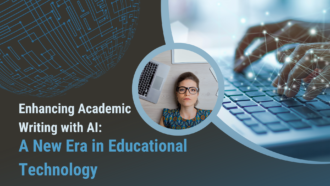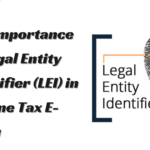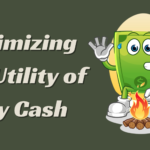Exploring the Intersection of Quantum AI and Traditional Markets in the UK
- 1 Understanding Quantum AI: A Brief Overview
- 2 The Current State of Traditional Markets in the UK
- 3 Quantum AI and Its Potential Impact on Traditional Markets
- 4 Challenges and Opportunities in Integrating Quantum AI into Traditional Markets
- 5 The Future of Quantum AI in the UK’s Traditional Markets
- 6 In conclusion
In recent years, the quantum artificial intelligence (AI) field has captured the interest and imagination of researchers and industry experts alike. With its potential to revolutionize various sectors, including finance and traditional markets, there is growing anticipation regarding the implications and applications of this emerging technology in the UK. This article aims to provide a comprehensive exploration of the intersection between quantum AI and traditional markets in the UK, offering insights into the basics of quantum computing, the current state of conventional markets, the potential impact of quantum AI, the challenges and opportunities in integration, and the future implications for market participants.
Understanding Quantum AI: A Brief Overview
To delve into the intersection of quantum AI and traditional markets, it is crucial first to grasp the fundamentals of quantum computing. Unlike classical computers that rely on bits, quantum computers utilize quantum bits or qubits. These qubits leverage the principles of quantum mechanics, enabling them to exist in multiple states simultaneously. This inherent superposition property allows quantum AI to perform complex computations more efficiently than classical computers.
The significance of AI in quantum computing is immense, particularly when we consider the need to discover Quantum AI’s potential. AI algorithms and quantum machine learning techniques are crucial for processing large data sets and optimizing the efficiency of quantum computations. This powerful combination of AI and quantum computing is poised to revolutionize traditional markets in the UK, unlocking new possibilities and efficiencies.
The Basics of Quantum Computing
Quantum computing involves manipulating qubits through quantum gates to perform mathematical operations. Quantum gates, analogous to classical logic gates, alter the state of qubits. Combining quantum gates allows complex computations to be completed in parallel, offering a significant advantage over classical computing in speed and efficiency.
Examples of standard quantum gates include the Hadamard gate, which generates superposition, the Pauli-X gate for flipping qubit states, and the CNOT gate, enabling entanglement between qubits. These gates form the building blocks for more complex quantum algorithms, such as Shor’s algorithm for factorizing large numbers and Grover’s algorithm for searching databases efficiently.
The Role of AI in Quantum Computing
Artificial intelligence plays a crucial role in harnessing the power of quantum computing. AI algorithms optimize quantum computations, reduce errors, and enhance the overall efficiency of quantum systems. Machine learning techniques like quantum neural networks can be applied to quantum AI to solve complex optimization problems and make accurate predictions.
This integration of AI and quantum computing enables the development of quantum AI models capable of analyzing vast amounts of financial data, identifying patterns, and generating valuable insights. These models can revolutionize traditional markets by providing more accurate predictions and decision-making capabilities.
The Current State of Traditional Markets in the UK
Before exploring the potential impact of quantum AI on traditional markets in the UK, it is essential to understand the current state of these markets. Traditional markets, encompassing various sectors such as stocks, bonds, and commodities, are regulated environments where buyers and sellers exchange assets. These markets are key components of the UK’s economy and are critical in wealth generation and capital allocation.
The Structure of Traditional Markets
Traditional markets operate within a structured environment, typically facilitated by exchanges and regulated by governing bodies. Buyers and sellers trade assets through intermediaries like brokers and investment banks. Stock exchanges, such as the London Stock Exchange, provide platforms for publicly listed stocks, whereas the bond market facilitates issuing and trading debt securities.
Participants in traditional markets include individual investors, institutional investors, corporations, and government entities. The interaction between these participants and their trading activities defines the dynamics of conventional markets, shaping supply and demand forces.
The Influence of Technology on Traditional Markets
Technology has had a profound impact on traditional markets over recent decades. The advent of electronic trading platforms, algorithmic trading, and high-frequency trading has transformed the speed and efficiency of market operations. These advancements have led to increased liquidity, tighter bid-ask spreads, and greater market access for investors and traders.
Furthermore, big data analytics and machine learning algorithms have enhanced market analysis and decision-making. Traditional market participants leverage these technological advancements to gain a competitive edge and optimize their strategies. However, the potential for even more significant disruption and innovation lies in the integration of quantum AI with conventional markets.
Quantum AI and Its Potential Impact on Traditional Markets
With a solid understanding of quantum computing, AI, and traditional markets, it becomes evident that quantum AI has the potential to revolutionize conventional markets in the UK. The intersection of these fields offers new possibilities and opportunities for market participants to enhance their strategies and decision-making processes.
Predicted Changes in Market Dynamics
As quantum AI becomes more prevalent in traditional markets, the dynamics of these markets are expected to undergo significant changes. The speed and efficiency of quantum computations can enable faster trade executions and more accurate market predictions, potentially shifting the balance of power between different market participants.
Moreover, the ability of quantum AI models to process vast amounts of financial data can uncover subtle patterns and correlations that may have previously gone unnoticed. This enhanced understanding of market trends and dynamics can improve trading strategies and risk management techniques, benefitting market participants.
Quantum AI in Financial Forecasting
One area where quantum AI can significantly impact is financial forecasting. Traditional market participants extensively rely on forecasting models to estimate future asset prices and make informed investment decisions. Integrating quantum AI into financial forecasting can enhance the accuracy and reliability of these models, providing a competitive edge for market participants.
By leveraging quantum AI’s computational power and pattern recognition capabilities, market participants can improve their understanding of complex financial systems and make more precise predictions. This could lead to enhanced risk management, improved portfolio performance, and increased returns for investors.
Challenges and Opportunities in Integrating Quantum AI into Traditional Markets
While the potential benefits of integrating quantum AI into traditional markets are tremendous, several challenges and opportunities must be considered to ensure a smooth and successful integration.
Technological and Regulatory Hurdles
The integration of quantum AI requires robust technological infrastructure capable of supporting quantum computing systems. Quantum computers are susceptible and prone to errors due to environmental disturbances and decoherence. Overcoming these technical challenges, such as improving qubit stability and error correction techniques, is crucial for practically implementing quantum AI in traditional markets.
Another aspect to consider is the regulatory framework governing traditional markets. Regulators must establish guidelines and standards for integrating quantum AI, ensuring fairness, transparency, and compliance with existing regulations. Maintaining market integrity and addressing potential risks associated with quantum AI technology will be paramount.
Potential Benefits and Growth Areas
Despite the challenges, integrating quantum AI into traditional markets paves the way for exciting growth areas and opportunities. Financial institutions can leverage quantum AI to develop advanced risk management models, optimize trading strategies, and enhance portfolio diversification.
Additionally, the emergence of quantum AI-powered fintech startups in the UK can offer innovative solutions and disrupt traditional market practices. These startups can provide unique trading algorithms, investment platforms, and financial services that harness quantum AI’s power, catering to market participants’ evolving needs.
The Future of Quantum AI in the UK’s Traditional Markets
The future of quantum AI in the UK’s traditional markets holds significant implications for market participants and the overall market landscape.
Preparing for a Quantum AI-Driven Market
To adapt to the emergence of a quantum AI-driven market, traditional market participants need to stay abreast of advancements in quantum computing and AI. Investing in research and development to understand and leverage quantum AI technology is crucial for maintaining a competitive edge.
Furthermore, collaboration between academia, industry experts, and regulatory bodies is essential to shape the future regulatory landscape, establish industry standards, and foster innovation in the quantum AI space.
Long-Term Implications for Market Participants
Integrating quantum AI into traditional markets will have long-term implications for market participants. Those who successfully leverage quantum AI technology stand to gain a significant advantage, with improved decision-making, more accurate predictions, and enhanced risk management capabilities.
However, as quantum AI technology develops and matures, market participants must adapt their strategies and upgrade their skill sets to navigate this evolving landscape effectively. The ability to interpret and utilize insights generated by quantum AI models will become a valuable asset for investors and traders.
In conclusion
the intersection of quantum AI and traditional markets in the UK holds immense potential for transforming how these markets operate. By understanding the basics of quantum computing, recognizing the current state of conventional markets, and exploring the potential impact of quantum AI, market participants can prepare for the challenges and opportunities. As quantum AI technology advances, the future of traditional markets in the UK will be shaped by those who embrace innovation and leverage the power of quantum AI to gain a competitive edge in this exciting and dynamic landscape.




















